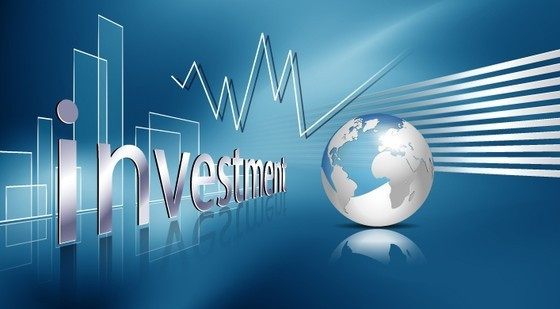
Best performing economy
At the East Asia Forum, Prof. Edmund Malesky from Duke University said that Vietnam ended 2022 as the best-performing economy in Asia which has largely been due to its ability to attract the current Foreign Direct Investment (FDI) from China.
Among these FDI companies that have moved to Vietnam, at least 11 Taiwanese companies are under the Apple Company’s supply chain, and talks are ongoing to increase the production of Apple tablets and smartphones in Vietnam.
Lego has also opened a US$ 1 billion factory in Binh Duong province.
The already existing FDI investors in Vietnam, such as Samsung and Intel, have now increased and expanded their operations in the country.
Total FDI capital has increased by 15 percent since last year by adding 1,570 new projects worth US$ 9.9 bln, and total import and export turnover increased by 5.7 percent to reach US$ 58.3 bln.
According to Prof. Malesky, investor interest in Vietnam has increased sharply since 2018 when US tariffs increased the cost of doing business in China.
Many companies had been manufacturing most of their goods in China while maintaining some smaller facilities in Vietnam as a backup plan. Due to higher US tariffs, these companies have now moved their production to Vietnam.
Low wages in Vietnam are also another attraction with less than half the salary for a similar position in China as reported in 2019.
Since 2020, FDI flows out of China have accelerated due to the impact of the US-China trade war, the Covid-19 pandemic, and Vietnam opening its doors to major markets around the world.
The US-China trade war has made it increasingly difficult for investors to export from China. Hence international companies are choosing to diversify to other countries in Asia such as Vietnam which has many advantages.
Vietnam also scores points because of its strong and stable growth from 2000 to 2022, with Vietnam's GDP growing more than 10 times, from US$ 39.5 bln to US$ 409 bln.
Compared to 2021, GDP in 2022 increased by 8.02 percent, which is an impressive figure in the difficult post-Covid phase.
Global businesses eye Vietnam
According to a recent study by the European Chamber of Commerce in Vietnam (EuroCham), business executives across Europe continue to see Vietnam as an attractive location for FDI, with 3 percent putting Vietnam on their top three global investment hotspots, and 36 percent identifying Vietnam as one of the top five investment destinations in the world.
EuroCham Business Climate Index (BCI), which is used to assess the business environment of European businesses and the investment community in Vietnam, has remained unchanged at 48 points in the first quarter of 2023.
According to responses in a survey, regulatory simplification, sustainability initiatives, investment incentives, and workforce development programs, have created the essential conditions for long-term economic success.
The research results show that the business and investment communities in Europe are satisfied with the policies for doing business in Vietnam.
One-third of the participants expressed significant or moderate satisfaction, demonstrating the Government's continued commitment to promoting a business-friendly environment.
In March, a delegation comprising 52 US businesses visited Vietnam to explore business investment opportunities. The delegation included businesses from a variety of sectors such as energy, finance-banking, insurance, manufacturing, information technology, healthcare, logistics, tourism, aerospace, and defense.
Among the delegation were representatives of well-known companies such as Apple, Coca-Cola, PepsiCo, SpaceX, Pfizer, Johnson & Johnson, Abbott, Visa, Citibank, Meta, Amazon Web Services, Boeing, Lockheed Martin, and Bell. Mr. Lawrence D. Bushnell, President of Gratia Dei Seafoods in Alaska, said that with a population of 100 million people and rising incomes of the people, the Vietnamese market is being targeted by well-established US businesses.
Anti-corruption efforts appreciated
Recently, Vietnam's anti-corruption efforts have been highly appreciated by many investors. FDI investors see this as Vietnam's determination to make the investment environment more transparent.
Prof. Malesky also said that along with anti-corruption and anti-bribery efforts, the Vietnamese Government is being very aggressive in reforming administrative procedures, and at the same time promoting the country's digital transformation. Policymakers in Vietnam have also focused on improving human capital.
According to the PCI 2021 survey, FDI investors are more optimistic about the ability to improve human resources in the future when assessing the value of technical and professional training programs in Vietnam.
Their ranking of the quality of local labor has been steadily improving for both general and vocational education.
Prof. Malesky also appreciated efforts to expand and upgrade infrastructure to improve the investment absorption capacity of Vietnamese policymakers.
He said the PCI 2018 report shows that Vietnam's infrastructure is not a comparative advantage for foreign companies when choosing investment locations.
By 2021, investor ratings had skyrocketed compared to 2017 in terms of road quality, from 3.72 to 4.44; port connectivity with highways improved from 4.02 to 4.49; and railway-highway connection went up from 3.97 to 4.41. Enterprises in the high-tech electronics industry have also become more aware of all infrastructure categories.
Source: SGGP